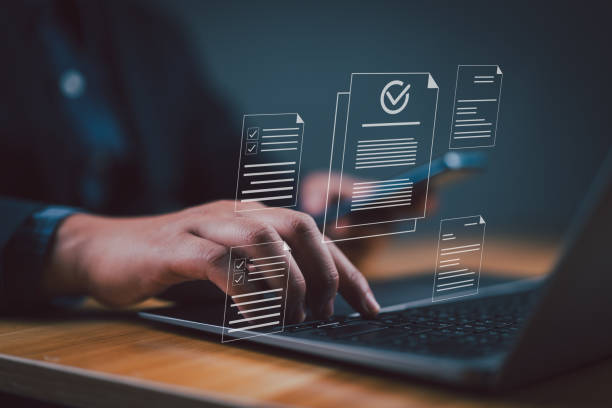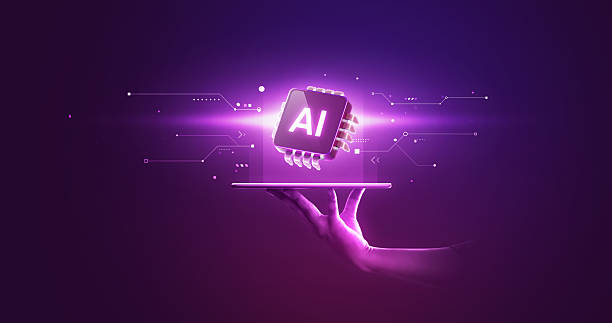Introduction to Off-Page SEO and Its Importance

In today’s highly competitive internet world, merely having a website with excellent content and on-page optimization is not enough. To achieve high rankings in search engine results pages (SERPs), we need comprehensive and targeted strategies that operate beyond the boundaries of our website.
One of these vital strategies is Off-Page SEO.
Off-Page SEO refers to a set of actions performed outside your website to improve its credibility, authority, and ultimately its ranking in search engines.
These actions include #building_quality_backlinks, #effective_social_media_presence, #online_reputation_management, and many other things.
The main goal of Off-Page SEO is to send positive signals to search engines like Google, indicating that your website is a credible, reliable, and useful resource for users.
Without a powerful Off-Page SEO strategy, even the best content might get lost among a multitude of websites and never reach its target audience.
The importance of Off-Page SEO stems from the fact that search engines, especially Google, largely evaluate a website’s credibility and popularity based on the number and quality of links it receives from other sites.
In other words, every quality backlink is like a vote of confidence from another website that has deemed your content valuable and authoritative.
The more such votes and the higher their quality, the more authoritative your site appears to Google, and the greater its chance of achieving top rankings in search results.
This explanatory section delves into the nature and reasons behind the importance of this part of search engine optimization.
Off-Page SEO not only affects keyword rankings but can also increase referral traffic from other sites, which is a major advantage in itself, leading to the attraction of targeted visitors and potential customers.
A successful Off-Page SEO strategy is always a combination of various tactics executed in a targeted and sustainable manner.
This educational approach helps you gain a deeper understanding of the different components of Off-Page SEO.
From natural and organic backlinks to active participation on social platforms and digital public relations activities, each plays a significant role in strengthening your site’s authority profile.
In fact, Off-Page SEO is more than just a set of technical techniques; it’s a continuous process of building valuable connections and strengthening brand reputation across the web.
This process helps your site establish itself as a recognized and reliable authority in its field of activity.
Undoubtedly, appropriate investment in Off-Page SEO will bring long-term and sustainable returns for your online presence and solidify your position in the online market.
Is your current e-commerce website design causing you to lose customers and sales?
Rasaweb is your solution with modern and user-friendly e-commerce website designs!
✅ Significant increase in conversion rates and sales
✅ Building strong branding and gaining customer trust
⚡ Get a free e-commerce website design consultation from Rasaweb!
Backlink Building: The Heart of Off-Page SEO and Its Types

Among all components of Off-Page SEO, backlinks are undoubtedly the most important and influential factor.
A backlink refers to a link from another website pointing to your website, and search engines consider it a sign of your content’s credibility and importance.
The more high-quality and topically relevant backlinks your site has, the higher your chances of achieving top rankings in search results.
However, it’s not just the number of links that matters; the quality, relevance, and domain authority of the referring site play a more critical role.
For instance, a link from a reputable news site or an academic authority in your field is far more valuable than a link from a low-authority, irrelevant blog.
This specialized section delves into the intricacies of backlink building and its types so you can adopt the best approach to strengthen your Off-Page SEO.
The backlink building process itself is carried out through various methods, each with its own advantages and disadvantages.
Among the most common methods are producing valuable and linkable content, offering free resources and tools, participating in podcasts and webinars, broken link building, and sponsored articles (advertorials).
The ultimate goal in all these methods is to create natural and organic backlinks that are given to your site by webmasters and users themselves, not links created artificially with the aim of manipulating rankings.
Google strictly combats spammy and low-quality links and can penalize sites that use such methods.
Therefore, focusing on quality over quantity in your Off-Page SEO strategy is essential to prevent any potential harm to your site’s ranking.
Backlinks can originate from various sources and come in different types.
Editorial Links, which appear naturally within the text of other websites’ articles, are the most valuable type.
Guest Posting links, obtained by writing articles for other sites with a link back to your own, can be useful if done carefully and with high quality.
Links from directories, forums, and comments usually have less value and should be used with extreme caution to avoid being considered spam.
Creating a successful backlink building strategy requires patience, effort, and creativity.
You should look for opportunities to naturally provide your content to relevant websites and blogs.
Connecting with influencers and other webmasters in your field can also be very effective.
They might be willing to link to your content if they find it useful and valuable.
This guiding approach helps you take the right steps in strengthening your Off-Page SEO and achieve sustainable results.
Backlink Quality and Authority Metrics in Off-Page SEO
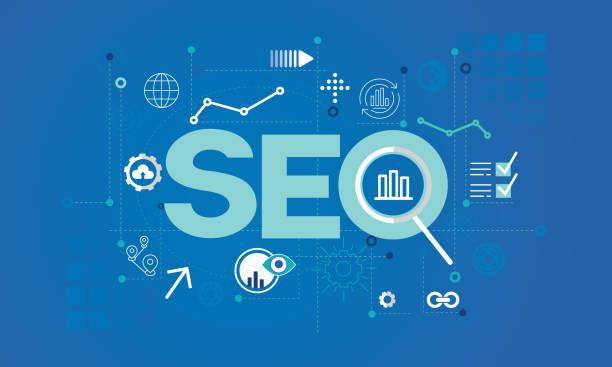
In the broad discussion of Off-Page SEO, understanding the different types of backlinks and their quality assessment criteria is of paramount importance.
Not all backlinks are created equal, nor do they hold the same value for search engines.
The two main categories of backlinks include DoFollow and NoFollow links.
DoFollow links allow search engines to pass link equity (Link Juice) from the source site to the destination site, while NoFollow links do not pass this equity and are primarily used to prevent spam in comment sections, for sponsored links, or user-generated content.
Nevertheless, having a mix of both types of links appears more natural and can help your site’s Off-Page SEO.
This explanatory and analytical section delves into the fundamental differences between these links and their authority metrics.
The quality of a backlink depends on several factors:
- Domain Authority/Rating (DA/DR) and Page Authority/Rating (PA/UR) of the linking site: A link from a high-authority site (such as major news sites, universities, or government entities) is far more valuable because it indicates public trust in that site.
- Topical relevance: If the linking site is in a similar or related thematic area to your site, the link’s value is significantly higher.
A link from an agricultural site to a technology site is less valuable than a link from another technology site. - Link placement on the page: Links located within the main content of the page (and not in the footer, sidebar, or a separate column) usually hold more value because users are more likely to click on them.
- Anchor Text: The words used for linking.
It’s best for anchor texts to be diverse, natural, and relevant to the target page’s topic to avoid Google penalties. - Naturalness of the backlink profile: Search engines look for a natural link profile, not a bulk of identical, artificial links aimed at manipulating rankings.
Diversity in sources, anchor texts, and link types indicates naturalness. - Absence of spammy links: The linking site should not have a spammy or penalized link profile.
Getting links from “bad neighborhood” sites can harm you.
Spammy and low-quality backlinks can severely damage your Off-Page SEO ranking.
This includes links from low-authority, irrelevant sites, or Private Blog Networks (PBNs) built to manipulate algorithms.
Identifying and removing or Disavowing these links is of paramount importance to stay safe from Google penalties.
This analytical section provides you with a deeper insight into link valuation.
Understanding these concepts helps you optimize your Off-Page SEO strategy and only seek to acquire high-quality, valuable links that truly enhance your site’s credibility.
Below is a table of common backlink types and their impact on Off-Page SEO:
| Backlink Type | Description | Impact on Off-Page SEO |
|---|---|---|
| Editorial Backlinks | Links that other websites naturally give to you within their valuable content. | High (Very valuable and safe) |
| Sponsored/Guest Post Links | Links obtained through payment or by writing guest posts on other sites. Should be used carefully and with a NoFollow tag. |
Medium (Risky if Google rules are not followed) |
| Profile Links | Links created in user profiles on forums, social networks, or directories. | Low to Medium (Often NoFollow and low impact) |
| Broken Link Building | Finding broken links on other sites and suggesting replacement with your own content. | High (Ethical, effective, and beneficial for the web) |
| Directory Links | Links from web directories. Their quality varies greatly, and many are low-quality. |
Low (Many are low-quality and potentially harmful) |
New Approaches to Link Earning and Branding in Off-Page SEO

The world of SEO is constantly evolving, and link-building approaches in Off-Page SEO are no exception.
What was effective in the past might no longer be efficient or even harmful today.
Currently, the main emphasis is on Link Earning instead of Link Building.
This means that instead of trying to place links everywhere, you should produce content that is so valuable and unique that other websites and individuals naturally want to link to it.
This informative and educational approach helps you get acquainted with the latest methods of link earning and brand strengthening in line with Off-Page SEO.
One of the most important new approaches is focusing on shareable and viral content.
Creating infographics, creative educational videos, free tools, in-depth research reports, and case studies are examples of content that have high potential for attracting natural links.
This type of content can not only attract high-quality links but also significantly increase referral traffic and brand awareness.
When your content is widely shared, it gains a greater chance of being seen by influencers, bloggers, and journalists who might link to it.
Also, active participation in specialized forums and industry-related groups, answering user questions on Q&A platforms (like Quora), and providing useful information can lead to valuable and relevant links, adding to your online reputation.
Digital PR has also emerged as a key component in modern Off-Page SEO strategy.
This approach involves creating news campaigns, issuing press releases, and collaborating with journalists and bloggers for media coverage of your content.
The goal of Digital PR is to attract the attention of reputable media outlets and news sites so they naturally link to your site.
These links are not only highly valuable but also significantly contribute to your brand’s credibility and reputation.
Building a strong and recognized brand means that users are more likely to directly search for your brand name on Google, and this increase in Brand Searches signals to Google that your brand is credible and popular.
This indirectly positively impacts your Off-Page SEO and site ranking.
Overall, focusing on producing valuable content, building strong relationships, and strengthening your brand ensures the future of Off-Page SEO.
Did you know that your company’s website is the first point of contact for 75% of potential customers?
Your website is the face of your brand. With **Rasaweb**’s corporate website design services, build an online presence that earns customer trust.
✅ Create a professional and lasting image for your brand
✅ Attract target customers and increase online credibility
⚡ Get a free consultation from **Rasaweb** experts!
The Role of Social Networks and Brand Mentions in Off-Page SEO

Although social networks do not directly act as a direct ranking factor in Off-Page SEO (meaning NoFollow links from these platforms do not pass direct authority), they play an indirect and very important role in strengthening your overall strategy.
An active and targeted presence on social networks can help increase the visibility of your content, drive traffic to your website, and ultimately attract natural links.
This guiding and explanatory section shows you how to leverage the potential of social networks and the importance of brand mentions to improve your Off-Page SEO.
When your content is shared on platforms like Twitter, LinkedIn, Facebook, Instagram, or Pinterest, it gains a greater chance of being seen by webmasters, bloggers, and journalists who might link to your content.
The more your content is shared and receives engagement (likes, comments, shares), the higher the likelihood of it being seen by influential individuals in your industry.
These individuals have the potential to cite your content as a credible source in their articles, blogs, or even news reports and link to it.
This is an excellent example of the indirect impact of social networks on Off-Page SEO.
Furthermore, when users talk about your brand on social media, even if they don’t link to your site, these Brand Mentions can act as a positive signal for search engines.
Moreover, social networks allow you to connect with your audience, enhance your brand reputation, and become a credible resource in your field.
The more recognized and trustworthy your brand is, the more people will naturally mention or link to it.
These mentions, even without direct links (Unlinked Mentions), are detectable by Google and contribute to increasing your brand’s overall credibility.
Monitoring social networks and the web to find these mentions of your brand and converting them into links is also a smart strategy.
Often, people mention your brand or content but don’t link to it.
Identifying these opportunities and politely requesting to add a link can help improve your Off-Page SEO.
Overall, social networks are not just a tool for marketing and customer communication, but also act as a powerful driving force for strengthening your Off-Page SEO strategy and should not be overlooked.
Importance and Optimization of Anchor Text in Off-Page SEO
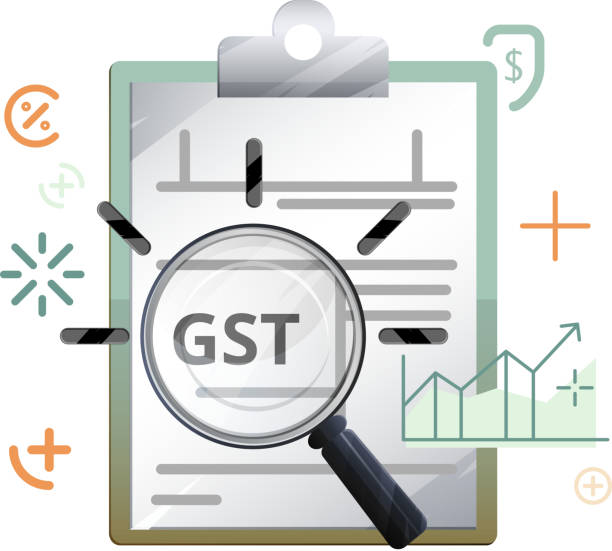
Anchor Text, which is the clickable text of a link, is one of the most important and sensitive factors in Off-Page SEO.
This text helps search engines and users understand what the linked page is about and how it relates to the current content.
Optimizing anchor text means using keywords intelligently and naturally, but not excessively or manipulatively to avoid penalties.
This specialized and guiding section delves into the details of anchor text optimization and emphasizes the importance of diversity to prevent potential risks.
Types of Anchor Text and Their Usage:
- Exact Match Anchor Text: Using the exact keyword of the target page (e.g., “Off-Page SEO”).
Excessive use of this type can lead to penalties, as it appears unnatural. - Partial Match Anchor Text: Includes the main keyword along with other related words (e.g., “professional Off-Page SEO services” or “complete Off-Page SEO guide”).
This type of anchor text appears more natural and is safer. - Branded Anchor Text: Using your brand name (e.g., “XYZ SEO Company” or “Amazing SEO Agency”).
This type is the most natural and safest anchor text and also helps strengthen your brand. - Naked URL Anchor Text: Using the raw URL as anchor text (e.g., “https://www.example.com/seo-external”).
This is also very natural and indicates that the link was placed manually for informational purposes. - Generic Anchor Text: Words like “click here,” “read more,” “view details,” or “details.”
These also help the naturalness of the link profile but provide little information about the target page’s content and should not be your only type of anchor text. - Image Anchor Text: When an image is linked, its Alt Tag text acts as the anchor text.
Ensure that image Alt Tags are relevant and descriptive.
The key to optimizing anchor text in Off-Page SEO is diversity and naturalness. Your backlink profile should have a diverse mix of different anchor text types that appear natural and organic.
Over-focusing on exact match anchor texts can send manipulative signals to Google and lead to penalties (such as the Penguin algorithm penalty).
Google wants to see that links are created naturally with the goal of providing value to users, not solely to increase the ranking for a specific keyword.
Therefore, when requesting links or producing content to attract links, pay attention to the anchor text you use and always prioritize naturalness and diversity.
A diverse anchor text profile is not only safer but also helps search engines better understand the semantic context of your site.
Tools and Techniques for Off-Page SEO Analysis
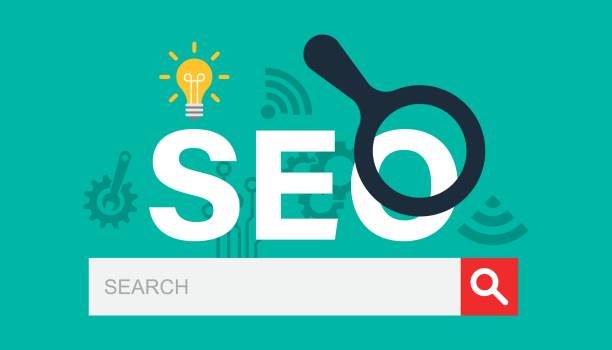
To effectively manage and optimize your Off-Page SEO strategy, you need to use specialized tools.
These tools help you analyze your backlink profile and those of competitors, identify new link-building opportunities, detect harmful links, and monitor your overall performance.
Choosing the right tool for Off-Page SEO can significantly save time and increase the accuracy of your analyses.
This educational and analytical section introduces some of the most important and widely used tools available in the market and techniques for using them, so you can make data-driven decisions.
Some of the most popular Off-Page SEO tools include:
- Ahrefs: One of the most comprehensive SEO tools, offering powerful backlink analysis capabilities.
You can view any website’s backlink profile in full detail, find broken links, identify top linking pages, and discover new link-building opportunities.
It also provides useful reports on anchor texts and referring domains. - SEMrush: This tool also has extensive SEO capabilities, including deep backlink analysis, competitor domain identification, and anchor text analysis.
SEMrush also offers tools for managing sponsored content campaigns and checking domain authority, helping you reverse-engineer your competitors’ strategies. - Moz Link Explorer: The Moz tool is known for its proprietary metrics like Domain Authority (DA) and Page Authority (PA), which help you evaluate the authority of pages and domains.
This tool is also useful for analyzing incoming and outgoing links, finding link-building opportunities, and indicating the spam score of links. - Majestic: This tool has a special focus on backlink analysis and offers its own unique metrics such as Trust Flow and Citation Flow, which help assess the quality and quantity of links.
These metrics provide a different perspective on link authority. - Google Search Console: Google’s free and essential tool that allows you to view incoming links to your site, disavow harmful links, and diagnose link-related issues.
This tool provides the most direct information from Google’s perspective.
Intelligent use of these tools allows you not only to evaluate your own Off-Page SEO performance but also to model successful competitor strategies.
Analyzing competitors and identifying their link sources can open up new opportunities for you and show you which type of link-building is more effective in your niche.
Furthermore, these tools help you identify and manage any spammy activities or harmful links that might damage your site’s ranking.
Active and successful Off-Page SEO management is almost impossible without using these tools. Therefore, investing in one or more reputable tools and learning how to fully utilize them is a fundamental step for success in Off-Page SEO.
Comparison of main features of Off-Page SEO analysis tools:
| Tool | Main Off-Page SEO Features | Pricing (Estimated) | Suitable for |
|---|---|---|---|
| Ahrefs | Comprehensive backlink analysis, competitor research, link-building opportunity identification, site audit, keyword research | From $99/month | SEO professionals, agencies, content marketers, large businesses |
| SEMrush | Backlink analysis, keyword SEO, competitor analysis, sponsored articles, site audit, rank tracking | From $129/month | SEO professionals, digital marketers, PPC specialists, large teams |
| Moz Link Explorer | Domain/Page Authority (DA/PA), backlink analysis, spam score identification, anchor text analysis | From $99/month | Small to medium businesses, bloggers, beginner to intermediate SEO practitioners |
| Majestic | Trust Flow and Citation Flow, backlink analysis from strength and authority perspective, link history review | From $49/month | SEO specialists with deep focus on backlink analysis and validation |
| Google Search Console | Internal/external link reports, disavowing links, site health check, crawl issues | Free | All webmasters and site owners, starting point for everyone |
Google Penalties and the Dangers of Spammy Link Building in Off-Page SEO
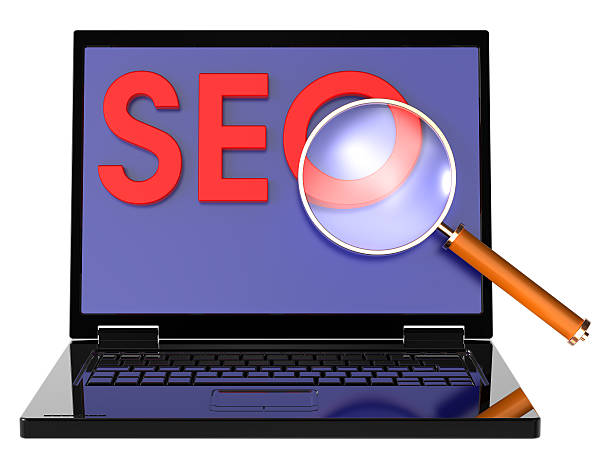
In the journey to improve Off-Page SEO, awareness of potential risks and penalties from Google is critically important.
Google strongly combats manipulative and illicit link-building practices.
Google’s goal is to provide the most relevant and high-quality results to users, and any attempt to deceive algorithms can lead to severe penalties that could completely destroy your online presence.
This critical and specialized section helps you avoid falling into the trap of these penalties and maintain a safe and sustainable strategy for your Off-Page SEO.
Penalties can be applied manually by Google’s human reviewers (Manual Penalties) or occur algorithmically (Algorithmic Penalties), such as the Google Penguin penalty.
Types of spam activities that can lead to penalties include:
- Buying and selling backlinks: Paying for links, or extensive link exchanges with the aim of manipulating rankings, is strictly prohibited by Google.
This also includes paid links without NoFollow or Sponsored tags. - Private Blog Networks (PBNs): Using a network of websites built solely to link to a main site to create artificial authority.
Google easily identifies these networks. - Over-optimized anchor texts: Excessive and unnatural use of target keywords in incoming anchor texts.
This indicates that the links are artificially created. - Low-quality links from spam directories and forums: Creating a large volume of links in low-value general directories and spammy forums that lack topical relevance.
- Hidden links: Links that are not visible to the user (e.g., links with font color matching the background) but exist for search engines.
- Excessive reciprocal link exchanges: Extensive and unnatural two-way linking between two sites with the goal of increasing rankings.
If you receive a penalty, your site’s ranking will drop significantly, or it may even be completely removed from search results.
Recovering from these penalties can be time-consuming, difficult, and even costly, requiring considerable effort to rectify the link profile.
To prevent these issues, you must adopt a completely ethical approach based on Google’s guidelines in Off-Page SEO.
Regular monitoring of your backlink profile using tools like Google Search Console and Ahrefs is essential for identifying and removing or Disavowing harmful links.
The Disavow tool allows you to tell Google to ignore specific links and not associate them with your site.
This process should be done carefully and only for links that are truly harmful.
Always remember that quality takes precedence over quantity, and natural, valuable links will bring the most sustainable results for your Off-Page SEO and put you on the path to success.
Are you bothered by losing customers who visit your site to make a purchase?
Rasaweb is your specialized solution for having a successful online store.
✅ Significantly increase your online sales
✅ Build trust and professional branding with customers⚡ Get a free consultation from Rasaweb experts!
Effective Content Production Strategies for Link Attraction in Off-Page SEO

Content production is not only vital for on-page SEO, but it also forms the foundation of a successful Off-Page SEO strategy.
Valuable and high-quality content is the main driving force for attracting natural backlinks and gaining online reputation.
If your content is good enough that people want to share it and link to it, you’ve already covered half the distance for Off-Page SEO, and your efforts will bear fruit.
This explanatory and guiding section helps you adjust your content strategy to strengthen your Off-Page SEO and achieve your maximum link-building potential.
Types of effective content for attracting links:
- Linkable Assets: These are pieces of content that, due to their inherent value, are attractive and authoritative for other websites.
This type of content is recognized as credible resources in their industry.
Examples:- Infographics: Present complex information visually, simply, and engagingly, and are highly shareable and linkable due to their easy digestibility.
- Case studies and research reports: Provide unique and in-depth data, statistics, key findings, and analyses that can be cited as authoritative sources in other articles and research.
- Free tools and resources: Calculators, templates, checklists, small software applications, or e-books that help solve user problems and naturally attract links.
- Comprehensive and in-depth content (Skyscraper Content): Long and complete articles that cover all aspects of a topic and are considered the best available resource in that field.
These types of content are good references for linking due to their comprehensiveness.
- Viral Content: Content with high potential for going viral and widespread sharing on social networks, such as entertaining videos, engaging challenges, or online contests.
This type of content can bring significant brand awareness and traffic. - Evergreen Content: Content that retains its value over time and continuously attracts traffic and links, such as comprehensive guides, basic educational articles, or specialized glossaries.
This content requires less updating.
After producing quality content, the next step is to promote and distribute it.
This means actively sharing content on relevant social networks, sending emails to influencers and relevant websites in your industry, and striving to get media coverage and natural backlinks.
Great content that isn’t seen cannot attract links. Therefore, your content strategy and its promotion must go hand-in-hand and complement each other.
By focusing on producing content that addresses the real needs of your audience and provides genuine value, you will lay the groundwork for a sustainable and successful Off-Page SEO and achieve your ultimate goal of improving rankings and increasing traffic.
Performance Monitoring and the Future of Off-Page SEO

As with any digital marketing strategy, measuring and monitoring Off-Page SEO performance is crucial to ensure the effectiveness of your efforts and their continuous optimization.
Spending time and money without regularly evaluating results will be futile and steer you away from the path to success.
This analytical and explanatory section helps you identify the key metrics you should track to evaluate the success of your Off-Page SEO strategy and gain a comprehensive understanding of the future of this field.
Continuous monitoring allows you to identify the strengths and weaknesses of your strategy and make necessary adjustments if needed.
Key metrics for monitoring Off-Page SEO include:
- Number of backlinks and referring domains: While quantity isn’t the only factor, a consistent increase in the number of high-quality backlinks from diverse domains is a sign of growth and success.
- Domain Authority (DA/DR) and Page Authority (PA/UR): Improvement in these metrics indicates an increase in your site’s credibility and authority in the eyes of search engines.
- Keyword rankings: An increase in the ranking of target keywords in search results is one of the most important indicators of Off-Page SEO success, directly impacting traffic.
- Organic traffic: An increase in organic traffic (visitors who come to your site through natural search) indicates the overall effectiveness of your SEO.
- Referral Traffic: Visitors who come to your site from other websites via backlinks.
This indicates the direct and valuable impact of your links. - Anchor text diversity: Monitoring anchor text diversity to ensure the naturalness of the backlink profile and prevent potential penalties.
- Link growth rate and link deletion rate: The rate of link growth should be natural.
Sudden and unnatural growth can appear suspicious.
The link deletion rate should also be low.
The future of Off-Page SEO is constantly evolving and will come with new challenges and opportunities.
As Google’s algorithms become smarter and move towards a deeper understanding of natural language and user intent, the emphasis on the quality, relevance, and naturalness of links will increase more than ever.
This engaging and informative section explores future trends and key challenges in the field of Off-Page SEO.
One of the most important challenges is keeping pace with rapid algorithm changes and predicting what Google will value more in the future.
Future trends in Off-Page SEO will likely include:
- Increasing importance of E-E-A-T: Expertise, Authoritativeness, Trustworthiness, and Experience.
Google will increasingly emphasize content produced by experienced and credible experts.
This means that backlinks from reputable sources with higher E-E-A-T will become more valuable. - Emphasis on Brand Mentions and offline credibility: As previously mentioned, unlinked mentions of your brand will gain more importance.
Google aims to understand which brands are genuinely discussed and trusted by users, and offline reputation will transfer to online. - Artificial Intelligence (AI) and semantic content understanding: With advancements in AI, Google will be able to understand content more deeply and better identify semantic connections between sites, regardless of whether a direct link exists.
- Focus on User Experience and Core Web Vitals: Although these are on-page SEO factors, they indirectly influence Off-Page SEO.
Sites that offer a better user experience are more likely to be shared and receive more natural links.
The main challenge for Off-Page SEO specialists is staying at the forefront of knowledge in this field and adapting to these changes.
The need for more strategic thinking, focusing on quality over quantity, and building genuine relationships with other websites and influencers will be more crucial than ever.
Investing in valuable content production, brand strengthening, and ethical practices in all aspects of Off-Page SEO is the only way to achieve sustainable success in the future.
Frequently Asked Questions
| Row | Question | Answer |
|---|---|---|
| 1 | What is Off-Page SEO? | Off-Page SEO refers to a set of actions performed outside your website to improve its ranking in search engines. These actions include backlink building, social media presence, branding, and more. |
| 2 | Why is Off-Page SEO highly important? | Off-Page SEO signals to search engines that your website is credible, popular, and trustworthy. High-quality backlinks from reputable sites are strong signals for better ranking and help increase your domain authority. |
| 3 | What are the most important components of Off-Page SEO? | The most important components of Off-Page SEO include: Link Building, Content Marketing, Social Media Marketing, Influencer Marketing, and Online Reputation Management. |
| 4 | What is a backlink and why is it important for Off-Page SEO? | A backlink is a link from another website pointing to your website. These links act as “votes of confidence” in Google’s eyes, indicating the credibility of your content. The more backlinks and the higher their quality, the better your site’s ranking will be. |
| 5 | What are the types of backlinks in terms of their impact on SEO? | The two main types of backlinks are DoFollow and NoFollow. DoFollow backlinks pass authority (Link Juice) and directly affect ranking. NoFollows do not pass authority but can still generate traffic and help make the link profile appear natural. (Also UGC and Sponsored) |
| 6 | How can I build high-quality backlinks for my site? | To build high-quality backlinks, you can use methods such as: producing excellent and shareable content, Guest Posting on relevant and reputable sites, Broken Link Building, Digital PR, and analyzing competitor backlinks. |
| 7 | What are Toxic Backlinks and how do they affect a site? | Toxic or spammy backlinks are links that point to your site from low-quality, spammy, or irrelevant websites. These backlinks can harm your site’s ranking and even lead to penalties by Google’s algorithms. |
| 8 | What is the role of social networks in Off-Page SEO? | Although social signals (likes, shares, etc.) are not direct ranking factors, they help Off-Page SEO. They increase content visibility, drive direct traffic to the site, and ultimately increase the chance of acquiring natural backlinks and improving brand recognition. |
| 9 | What is the importance of diversity in the backlink profile? | Diversity in the backlink profile means that your links come from various sources (blogs, forums, news sites, directories), with diverse anchor texts, and a mix of DoFollow and NoFollow links. This diversity signals to Google that your link-building is natural and organic. |
| 10 | What are common Off-Page SEO mistakes to avoid? | Common mistakes include: buying backlinks in high volume from low-quality sources, excessive link building with target keywords (Over-optimization), neglecting quality for quantity in backlink building, lack of diversity in the link profile, and ignoring toxic backlinks and not disavowing them. |
And other services of Rasa Web Advertising Agency in the field of advertising
Smart Brand Identity: A new service to increase click-through rates through precise audience targeting.
Smart Marketplace: A professional solution for campaign management focusing on precise audience targeting.
Smart Link Building: A new service to increase user engagement through intelligent data analysis.
Smart Digital Advertising: A fast and efficient solution for online growth focusing on custom programming.
Smart Link Building: Professional optimization to increase website traffic using precise audience targeting.
And over hundreds of other services in the field of internet advertising, advertising consulting, and organizational solutions
Internet Advertising | Advertising Strategy | Advertorials
Sources
Golden Off-Page SEO Tips
Principles of Correct Link Building
Advanced Off-Page SEO Techniques
Effective Backlink Strategies
? For visibility and leadership in the digital world, Rasaweb Afarin Digital Marketing Agency is with you. We elevate your business by providing comprehensive services including personal website design, SEO, and social media management.
📍 Tehran, Mirdamad Street, next to Bank Markazi, Southern Kazeroon Alley, Ramin Alley, No. 6

